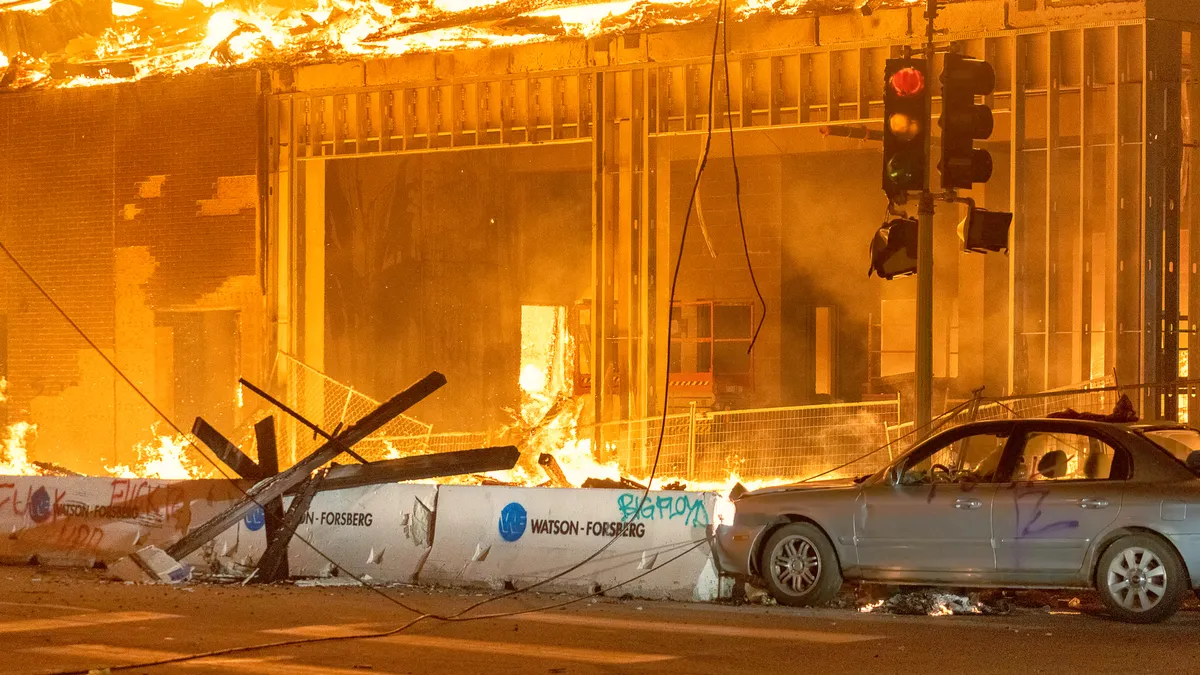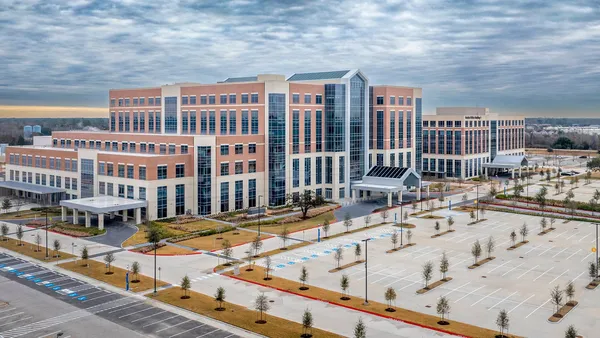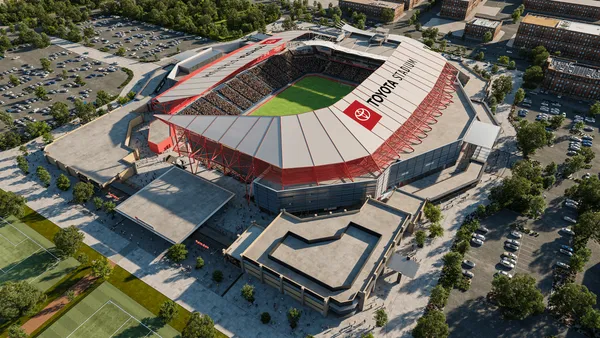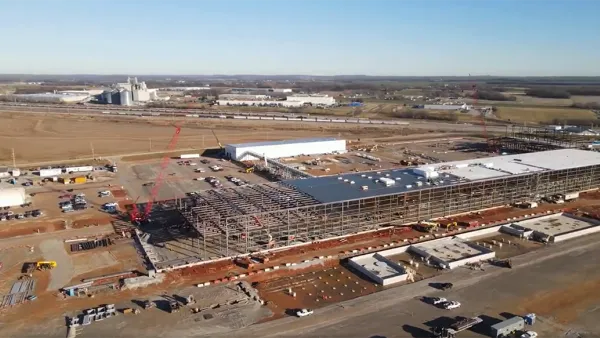As many projects across the U.S. are swinging back into action after being shut down due to the COVID-19 pandemic, contractors are facing another threat to their schedules and, potentially, the projects themselves.
Protests that started after the May 25 death of George Floyd, the Minnesota man who was killed in police custody, have brought with them vandalism, looting and acts of arson in many cities. While the lion's share of damage has been to existing buildings and businesses, construction projects have not been exempted from the chaos.
An 189-unit mixed-use, affordable housing project under construction in Minneapolis burned to the ground May 27, leaving only the first-floor concrete structure intended for commercial space. The six-story Wellington Management property was supposed to be finished later this year, but Wellington has not announced whether it will move forward with the project.
This project, which was being built by an Associated General Contractors member, said Tim Worke, CEO of the AGC of Minnesota, is the only construction project he knows of that took such a hit.
"We have heard very little in the way of project or workforce impacts attributable to social unrest and ongoing protests and riots," he said. "Beyond this single, direct and impactful incident, we have not had any reports or concerns registered."
Arson is also suspected as the reason for a fire at the under-construction Residences of Topiary Park apartment building in downtown Columbus, Ohio. Local fire officials said that it is "highly likely" that the fire was related to the protests. It is not known yet whether the building is a total loss.
Less serious incidents
On Friday, for example, people broke through the fence surrounding a jobsite in downtown San Jose, California, to get at pieces of wooden 2x4s, reportedly to use as weapons. Construction workers were able to secure the site and repair the fence once the area was cleared.
While curfews in cities like Los Angeles and New York prevent construction staff from working at project sites during restricted hours, Chicago aimed to protect both construction workers and the general public by shutting down all projects in its downtown.
Tom Cuculich, executive director of the Chicagoland AGC, told Construction Dive that while that order was in effect last weekend and on June 1, it was lifted and work continued on June 2, subject to change if there was a threat to worker safety.
"Any jobsites that didn’t reopen on Tuesday were ... because [contractors] either couldn’t get employees on site or had already planned to remain closed," he said.
The AGC of California's CEO, Peter Tateishi, said that the association's members have reported some damage to their sites and that it has been keeping members in the state up to date on more than 40 local agency curfew orders via a live tracker.
Otherwise, contractors are assessing their own risk, administratively and on the jobsite.
"Contractors are reviewing their project risk management strategies and insurance coverages with their risk management representatives," Worke said, "to protect their interests and exposure."
In Chicago, it's down to commonsense changes.
"Some companies," Cuculich said, "are switching from open dumpsters to closed dumpsters as an ongoing precaution to mitigate or remove any possible supply of projectiles."













